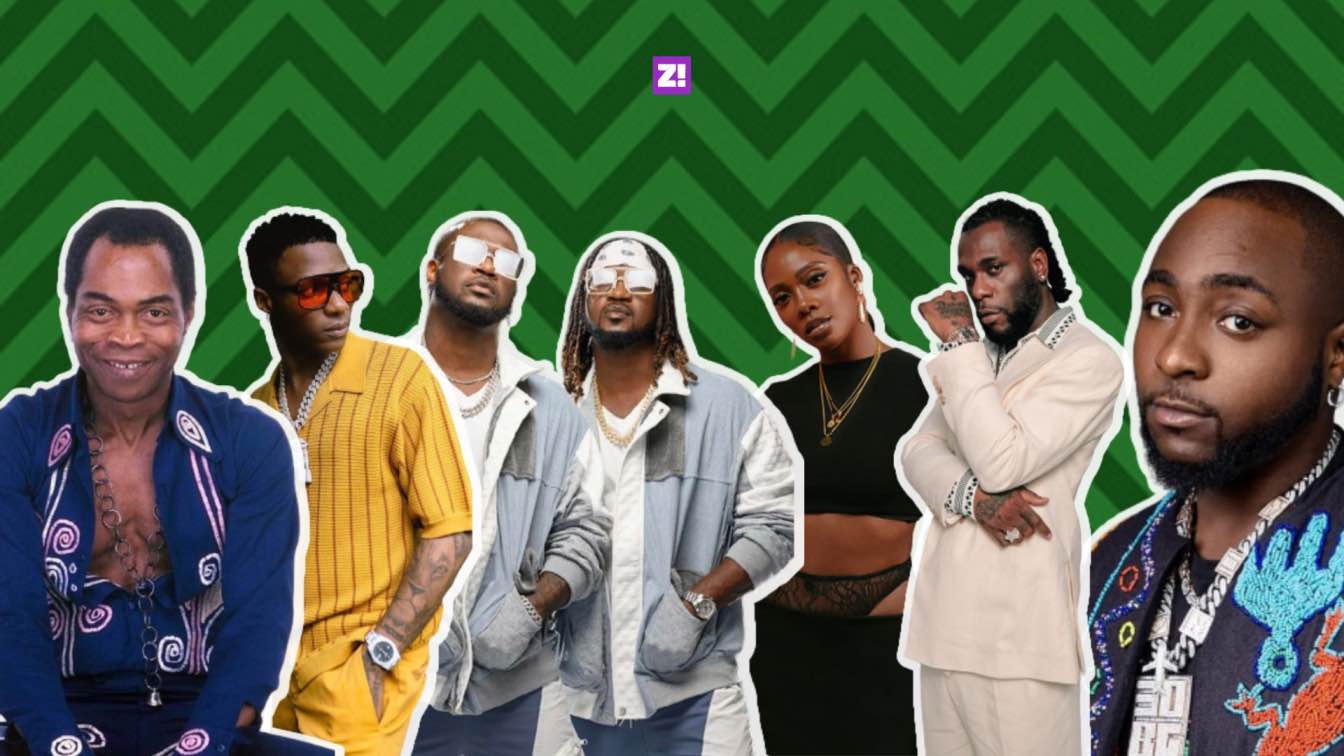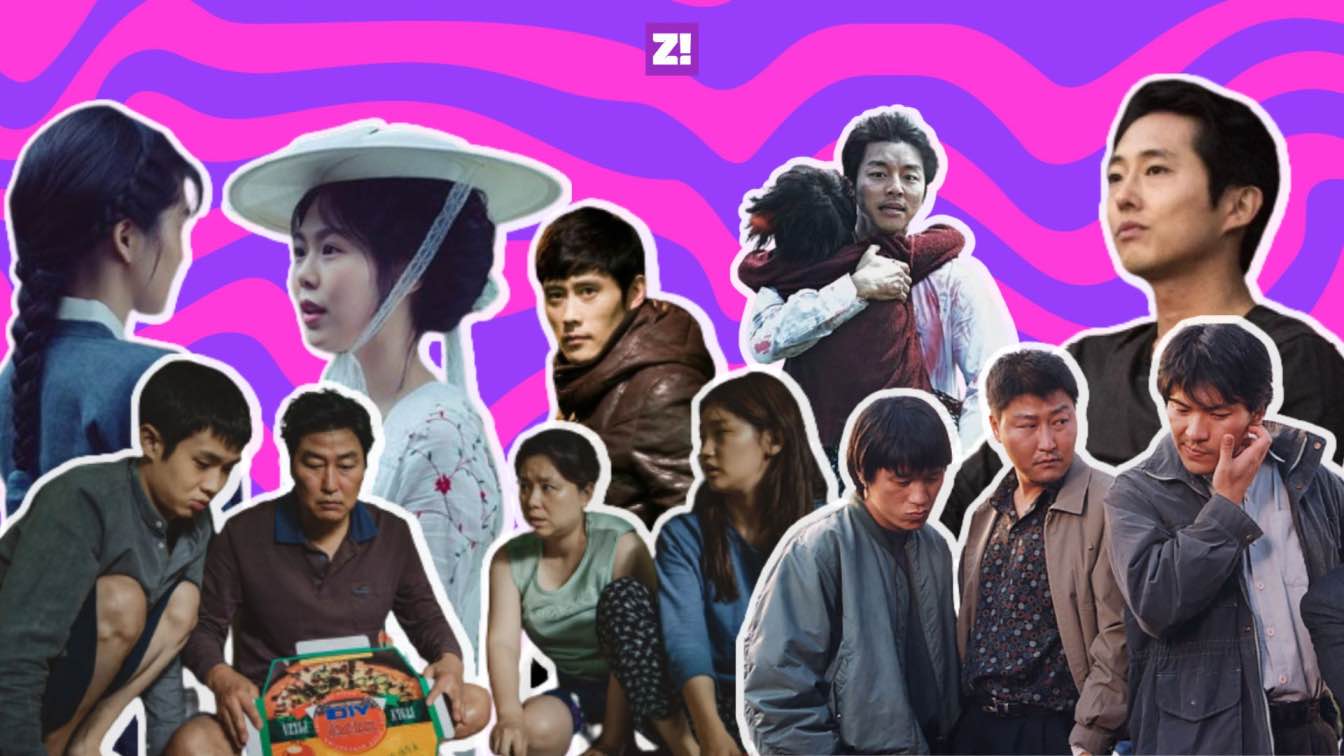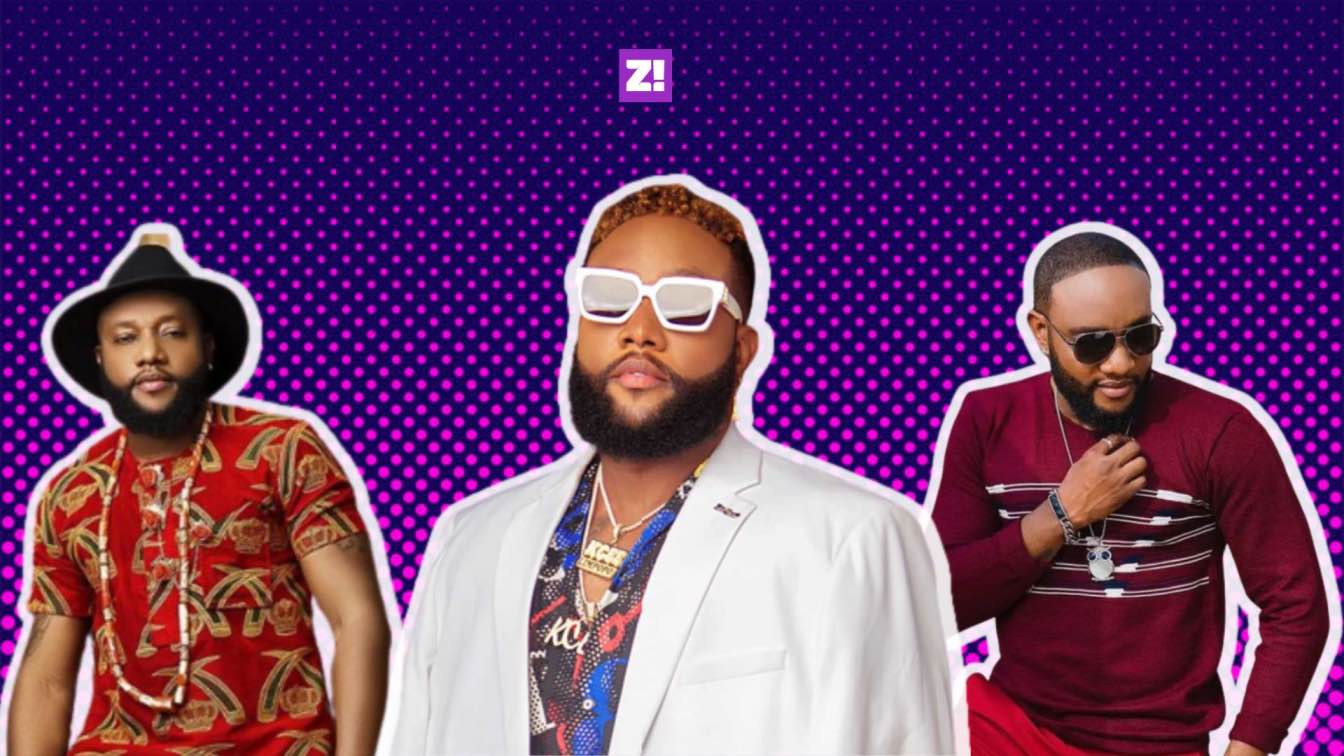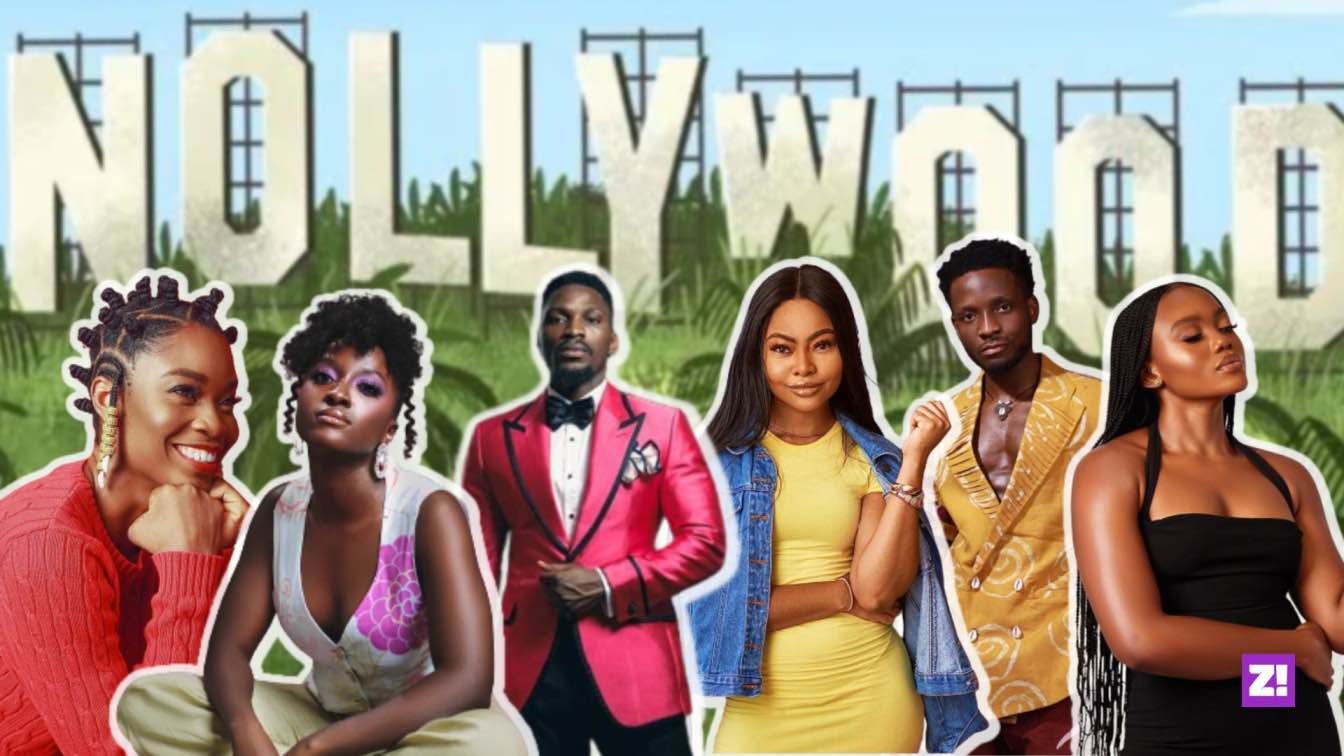What does it mean to be a man? Surely, it’s not one thing. It’s a series of little moments that add up. Man Like is a weekly Zikoko series documenting these moments to see how it adds up. It’s a series for men by men, talking about men’s issues. We try to understand what it means to “be a man” from the perspective of the subject of the week.
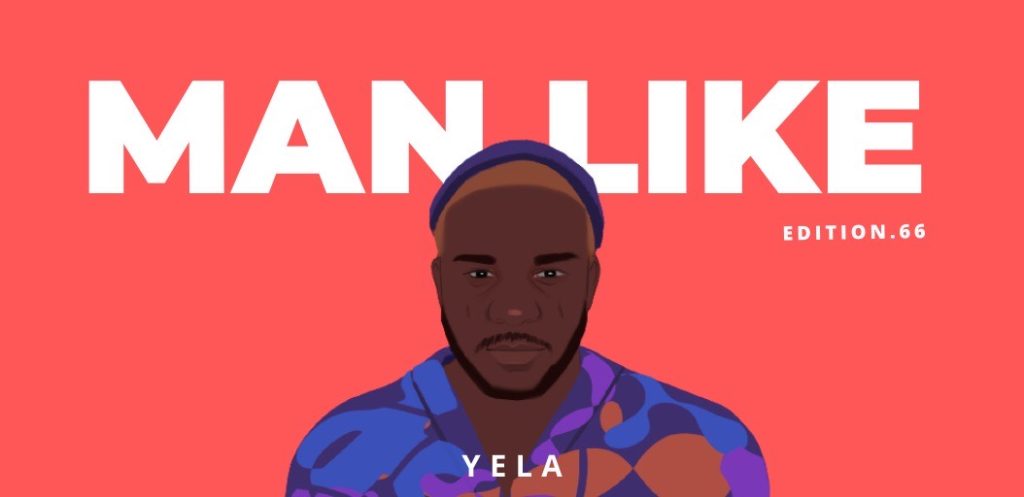
Today’s Man Like is Afolabi “Yela” Aiyela, a songwriter, musician and branding executive. As an artist, his songs have been featured on various Nollywood productions including Skinny Girl in Transit, Banana Island Ghost, Phases and Little Black Book.
In this episode of Man Like, he talks about building his relationship with his dad after his parent’s separation, running away from home, how being an upcoming artist can get depressing and why women are more valuable than men.
Tell me a little bit about your childhood.
My childhood was a bit lonely. My parents went their separate ways when I was a baby, so it was just me and my mum for the most part. At some point, she sensed my loneliness, and we started having a lot of cousins and other family members around, but deep down, it never fully filled the void I felt. Then I found music.
These cousins I had around me always had a lot of CDs at the time and listening to their records helped introduce me to a different world through music. There was Madonna, Brandy, Mariah and all these artists. I ended up immersing myself in the music and that was a way I could escape the loneliness I was experiencing. It was also where my love for being a musician started. I realised I could sing like these guys I was listening to.
I’m curious about your relationship with your dad since you spent all this time with your mum. . .
Oh, my dad is late now. He died of pancreatic cancer in 2010.
So sorry about that.
It’s fine. 2010 was a long time ago. For most of his life, I only visited him during holidays. Luckily for me, I got to spend more time with him during the last six years of his life. In 2004, I left my mum in Abuja where she lived and moved in with my dad in Lagos. During that time, we got to build a relationship we didn’t have before. I love that I can look back and say he wasn’t a stranger in my life, that he was present. Although it was weird at first because I felt like I was rewriting certain wrongs.
What wrongs?
My dad thought I’d be like his other kids. My step-siblings gave my dad a lot of stress. They would steal, bash his car and just other juvenile stuff. In their defense, it was a reaction to him being militant and overly strict with them.
He had this fear that I would be just like them, but I just wasn’t into all that unnecessary drama. We got along once he realised that.
Interesting. What motivated the Lagos move though?
Errrrrrmmmmm. . . I ran away.
Oh?
While my dad had his own issues, my mum was super strict. Looking back, I’ll say it shaped me and gave me the sense of discipline I have today, but back then, I hated it. She would always say the reason she was hard on me was that she didn’t want me to be a spoiled only child. I understood that, but as I got older, it started to get to me. I hadn’t given her any trouble, so I wondered why she was on my case. I remember the tipping point being a fight we had about how I wanted to spend the money an aunt had gifted me. So my mum wanted to save it, but I wanted to spend it on new uniforms or something like that. It was petty, but we were already fighting a lot, so the next day I hopped on a bus to Lagos and didn’t look back.
See vex. How did she take it?
It was hard for her because I had spent most of my life with her, but I just needed to get away. I believe it was the right choice because I eventually spent time with him before he passed.
Did you talk to your dad about his initial absence from your life?
We spoke a ton. I finally got to see things from both sides. They were both stubborn and everyone wanted to be right. When they met, my mum was already independent with a career of her own, and from my understanding, the marriage was born out of a need to settle down, not necessarily love. Over time, the issues became a lot and they just figured out it wasn’t worth it anymore. Talking to my dad helped me understand this.
Getting to know him later in life, how did his death affect you?
I remember I was writing my finals, so no one wanted to tell me he had cancer. I came back home on the assumption that he had gone for his routine check-up only to hear the news. He came back about three weeks later in a wheelchair, a shadow of the man I knew. We spent a lot of time together as I was the only child around. Up until the day he died, I assumed he was getting better. It was shocking to wake up and realise he had died overnight. Took me a while to get over it, but I still miss him and it hits me hard because I know if he were alive, a lot of things wouldn’t have happened to me.
Like what?
He believed in my music from the jump, unlike my mum who got into it like two years ago. He always told me I had something in me. I wish he was there to hold my hand and guide me through most of my decisions. I was very spontaneous in my 20s. I mean, I quit a bank job, bought a ticket and moved to South Africa to chase music. He would’ve helped me make better choices.
Being spontaneous when you were younger, do you regret anything?
I believe in fate, where every experience is a building block that gets you to where you’re supposed to be. I don’t regret anything. I might have had to struggle with depression because my dreams were not taking off as I’d expected, but I’m still thankful for it because it’s all part of my journey.
How did you envision your career and how did it fall short of your expectations?
My music has always been different. I love experimenting with sounds, and I remember someone from the radio telling me my sound was too “alternative” and “experimental” for Nigeria. No one knew where to put me. This is why I moved to South Africa. When I got there, I realised that while they liked my music, the industry was stacked against outsiders. I went to almost every record label, but the problem was they didn’t want to work with someone who didn’t have papers. Don’t get me wrong, I was more than willing to go through the process of getting my papers, but these people made what was supposed to be a simple process extremely difficult for Nigerians. I left when I realised my visa was about to expire, I had no plans of living there as a fugitive.
I moved back to Nigeria with the mindset of making music for radio because while art is art, it’s also a product. Even after tweaking my sound, my music still wasn’t connecting with the level of intensity I expected it to. I would work really hard and put something out, only for it to fall flat or die slowly. It really messed with my mind. I started to doubt myself and ask if maybe my friends and family had just overhyped my talent. It was a lot because I was doing everything myself, being my manager, publicist, etc. These things would send me into bouts of depression over a long period of time.
How did you work through this?
Music. It’s crazy, but my love for music was my way out. The truth is, even if I never make music again, I’m still a fan of it. I listen to music all the time and it’s what helps me cope and heal. There’s magic in good music.
True that. Talking about good music, how do you maintain honesty in your work?
When it comes to my music, I don’t want a project that just goes in one direction, I want a myriad of emotions. I want people to listen, cry and dance with me. To do this, I have to be as honest as possible. For Antisocial, which people refer to as my biggest song, I wrote about how I was feeling at the time and it surprisingly connected with a lot of people. I just try to write from a realistic place that is true to my experience.
What do you strive for as a musician?
I try to be my most authentic self; sonically and personally.
Love that. I’m curious to get your thoughts on the concept of masculinity?
I’ve experienced masculinity in different stages. There’s the idea that was drilled into me as a child — being impenetrable and seizing control. We were taught to see women as objects when in reality, they should be on a higher ranking than men. They do so many things that men can’t even fathom or attempt. They literally create life and we can’t do that. The masculinity I recognise today is different. For one, it understands the power of vulnerability. There is a major difference between what society described as masculinity back then and what it is today. That being said, I believe it’s our responsibility as men today to note these differences, unlearn the past, listen to the conversations being had and evolve with the times.
How did you get to recognise this?
I exposed myself to a lot of information. I listen to different perspectives and experiences outside of my own, both in real life and through the media. Doing this, especially since I spent a lot of time consuming foreign media, I got to spot the disparities between what we see here in Nigeria and what an ideal society looks like. In Nigeria, we’re still shocked when we see women in certain positions of power, when globally, women have been wearing many hats for a long time. The narratives aren’t balanced out. In the end, everything boils down to how you want to be treated as a human being. It doesn’t hurt to treat others the same. Also, everything is easy to learn now. We can access information and be better.
I totally agree. So what are you looking forward to in the new year?
Honestly, I just want to be happy, well and in control of whatever narrative my life takes this year. It doesn’t matter if it’s at work or in my relationships.

